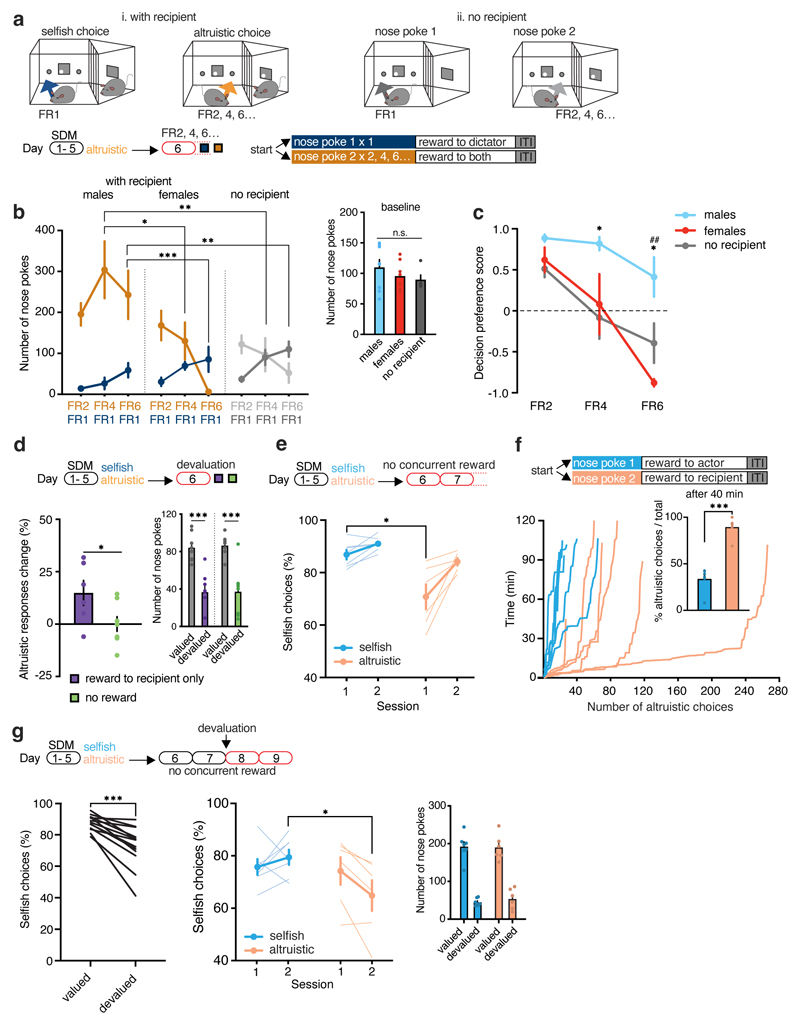Figure 2. Mice are willing to take altruistic decisions under costly situations.
a, Experimental design of the SDM with different fixed ratio (FR) schedule. b, Left, Number of nose poke on FR1 versus FR2, FR4 and FR6 in males (n=7) and females (n=4) actors and actors tested without recipient (n=5) (between groups: two-way RM ANOVA, group (with recipient males, with recipient females, no recipient) x response (FR2, FR4, FR6), F(10, 52)=4.25, p=0.0002; within groups: two-way RM ANOVA, group (with recipient males, with recipient females, no recipient) x response (FR2, FR4, FR6), F(4, 26)=4.48, p=0.0069). Right, number of nose pokes on SDM day 5 (one-way ANOVA, F(2, 13)=0.67, p=0.5270). c, Decision preference scores with FR2, FR4 and FR6, compared to FR1, in mice tested with recipient (male, n=7 and female, n=4) and without recipient (n=5) (two-way ANOVA, group (with recipient males, with recipient females, no recipient) x response (FR2, FR4, FR6), F(4, 26)=3.55, p=0.0193). males: *p=0.0265 (FR4) and p=0.0678 (FR6) vs. no recipient, ##p=0.0010 vs females. d, Actors’ change in altruistic choices during devaluation test in the condition rewards to recipients only (n=6) and no reward (n=8, two-tailed paired t-test: t=2.28, d.f.=12, p=0.0410), and number of nose pokes during valued and devalued sessions (two-way RM ANOVA, session type (valued, devalued), F(1, 14)=43.07, p<0.0001). (e-f), Following SDM training altruistic choices did not result in concurrent reward for the actor. Percentage of selfish choices (e, two-way RM ANOVA, group (selfish, altruistic) x time (session 1-2), F(1, 11)=4.90, p=0.0488) and number of altruistic choices (f) over 120 minutes of SDM in mice grouped by selfish (n=7) or altruistic (n=6) preference (inset, percentage of altruistic choices in the first 40 minutes / total number of altruistic choices; two-tailed unpaired t-test, t=8.17, d.f.=10, p=0.0001). g, Selfish choices in the SDM (n=13), without concurrent reward (as in e-f), following satiety-induced reward devaluation compared to valued session (two-tailed paired t-test, t=5.41, d.f.=12, p=0.0002) and differences between altruistic (n=6) and selfish mice (n=7) (two-way RM ANOVA, group (selfish, altruistic) x time (session 1-2), F(1, 11)=6.37, p=0.0282). *p<0.05, **p<0.01, ***p<0.001. n.s. not significant. Values are expressed as mean ± s.e.m.

